In this report, PEN America will provide an in-depth analysis of the countries that detain and imprison the largest numbers of writers and intellectuals and explore the impact of the pandemic on the freedom to write; the role of these individuals in protest movements; and the continued threats to writers and intellectuals working in languages subject to political repression.

-
Racism and Incitement Index 2024
The Index reveals a sharp rise in online hate speech against Palestinians by Israeli social media users, as online platforms fail to control inciting and violent content.
7amleh – Arab Center for the Advancement of Social Media — 11 March 2025 -
Hashtag Palestine 2024
7amleh’s report examines how Israel’s digital repression silences Palestinian voices, restricts online spaces, and deepens systemic injustice.
7amleh – Arab Center for the Advancement of Social Media — 29 January 2025 -
HRW WORLD REPORT 2025, Annual Review Of Human Rights Around The Globe
The past year was marked by armed conflicts and humanitarian crises that exposed the fraying of international protections for civilians and the devastating human cost when they are flouted,
Human Rights Watch — 17 January 2025 -
In record year, China, Israel, and Myanmar are world’s leading jailers of journalists
A total of 361 journalists were behind bars on 1 December 2024, the second-highest number since the global record set in 2022.
Committee to Protect Journalists — 17 January 2025 -
Erased and Suppressed: Palestinian Testimonies of Meta’s Censorship
The report highlights direct testimonies from Palestinian influencers, journalists, and media outlets who have faced Meta’s discriminatory practices.
7amleh – Arab Center for the Advancement of Social Media — 18 December 2024 -
2024 round-up
RSF’s 2024 global round-up reveals rise in journalists killed and imprisoned
Reporters Without Borders (RSF) — 13 December 2024 -
The Noose is Tightening Around Us: Algeria’s Use of Transnational Repression to Crackdown on Dissent
The report details the array of tactics employed by the Algerian government to silence dissent beyond its borders, drawing troubling parallels to authoritarian practices of countries like China and Egypt.
Cairo Institute for Human Rights Studies (CIHRS) — 27 November 2024 -
Journalism in The #MeToo Era
The #MeToo movement to empower women’s voices spurred the creation of new media outlets, revisions to newsroom policies, and the development of new journalist networks. Yet investigating women’s rights remains dangerous.
Reporters Without Borders (RSF) — 25 November 2024 -
Restrictions on press freedom and media suffocation in the electoral context in Venezuela
The report found over 228 violations of press freedom, and at least eight journalists remain arbitrarily imprisoned.
Reporters Without Borders (RSF) and partner organisations — 19 November 2024 -
Delete the Issue: Tech Worker Testimonies on Palestinian Advocacy and Workplace Suppression
7amleh’s report exposes bias against Palestinian rights advocacy in tech, urging companies to protect employees’ freedom of expression.
7amleh – Arab Center for the Advancement of Social Media — 12 November 2024 -
“We Try to Stay Invisible”: Azerbaijan’s Escalating Crackdown on Critics and Civil Society
Azerbaijan is carrying out a vicious attack on government critics, independent groups, and media. The crackdown has intensified just months before Azerbaijan is to host COP29, the United Nations Climate Change Conference, which opens in Baku on 11 November 2024.
Human Rights Watch — 8 October 2024 -
A tapestry of actors, attitudes, and impact: Countering disinformation in Africa
A study of the evolving disinformation landscape identifies key protagonists involved in the pushback and the tactics they employ to curb the escalating challenge.
Collaboration on International ICT Policy for East and Southern Africa (CIPESA) — 10 September 2024 -
No Way In or Out: Authoritarian Controls on the Freedom of Movement
Authoritarian governments around the world are restricting freedom of movement in retribution for political activism and dissent, subjecting people to a variety of repressive tactics, including travel bans, revocation of citizenship, confiscation of passports.
Freedom House — 23 August 2024 -
From Sharing to Silence: Assessing social media suppression of SRHR content in WANA
SMEX examines platform content moderation policies for sexual and reproductive health and rights in the West Asia and North Africa (WANA) region.
Social Media Exchange (SMEX) — 23 April 2024 -
War, Censorship, and Persecution: PEN International Case List 2023/2024
On World Poetry Day, PEN International released this report, highlighting challenges for writers in global conflicts and emphasizing the need to safeguard freedom of expression, especially in war-torn regions.
PEN International — 21 March 2024 -
Racism and Incitement Index
An average of 23 violent or hateful pieces of content were published against Palestinians every minute after 7 October, reports 7amleh.
7amleh – Arab Center for the Advancement of Social Media — 26 February 2024 -
Israel-Gaza war brings 2023 journalist killings to devastating high
More than three quarters of the 99 journalists and media workers killed worldwide in 2023 died in the Israel-Gaza war, the majority of them Palestinians killed in Israeli attacks on Gaza. The conflict claimed the lives of more journalists in three months than have ever been killed in a single country over an entire year.
Committee to Protect Journalists — 20 February 2024 -
Climate and Environmental Journalism Under Fire
Journalists who cover climate and environmental stories are targeted by powerful private and state actors who are willing to go to great lengths to protect their lucrative interests linked to environmentally harmful activities.
International Press Institute — 13 February 2024 -
WORLD REPORT 2024: HRW Annual Review Of Human Rights Around The Globe
“The international system that we rely on to protect human rights is under threat as world leaders look the other way when universal principles of human rights are violated.”
Human Rights Watch — 11 January 2024 -
Meta’s Broken Promises: Systemic Censorship of Palestine Content on Instagram and Facebook
Human Rights Watch found that the problem stems from flawed Meta policies and their inconsistent and erroneous implementation, overreliance on automated tools to moderate content, and undue government influence over content removals.
Human Rights Watch — 5 January 2024 -
Israel’s Surveillance Industry and Human Rights: Impact on Palestinians and Worldwide
The report provides an overview on the reality of the Israeli surveillance systems industry, outlines its impact on the human rights of Palestinians and implications worldwide.
7amleh – Arab Center for the Advancement of Social Media — 19 December 2023 -
2023 ROUND-UP Journalists killed, detained, held hostage and missing
In the year to 1 December 2023, RSF recorded 45 journalists killed worldwide in the course of their work, the lowest number since 2002.Reporters Without Borders (RSF) — 14 December 2023 -
A Light That Cannot Be Extinguished: Exiled Journalism and Transnational Repression
Journalists living in exile face assault, harassment, and unlawful deportation at the hands of the governments they fled.
Freedom House — 11 December 2023 -
Privacy First: A Better Way to Address Online Harms
In this report, EFF explores a new approach to tackling online harms leaving behind strategies based on ill-conceived bills and censorship-driven solutions.
Electronic Frontier Foundation — 15 November 2023 -
Shouting into the void: Why reporting abuse to social media platforms is so hard and how to fix it
When PEN America and Meedan asked writers, journalists, and creators about their experiences reporting online abuse to social media platforms, thet heard again and again, over the past three years, about the deep frustration, exasperation, and harm caused by the reporting mechanisms themselves.
PEN America — 25 October 2023 -
Freedom on the Net 2023: The Repressive Power of Artificial Intelligence
Freedom House has found that while innovations in AI contributed to the 13th consecutive year of global decline in internet freedom, older forms of digital repression continued to proliferate.
Freedom House — 4 October 2023 -
Sustainable Development Goals: On or off track? Assessing the progress through freedom of expression and information
As London hosts the Sustainable Development Goals (SDG) Summit, ARTICLE 19 releases a new briefing assessing the progress made towards meeting the SDG on freedom of expression and access to information.
ARTICLE 19 — 25 July 2023 -
How are courts responding to SLAPPs?
Analysis of selected court decisions from across the globe.
ARTICLE 19 — 20 April 2023 -
Still Not Safe: Transnational Repression in 2022
Perpetrators from a total of 20 states were responsible for 79 incidents of physical transnational repression last year, including the first documented cases originating in Djibouti and Bangladesh.
Freedom House — 10 April 2023 -
Freedom in the World 2023
Marking 50 years in the struggle for democracy
Freedom House — 13 March 2023 -
Privacy International’s comments on the zero draft of the WHO convention, agreement or other international instrument on pandemic prevention, preparedness and response (“WHO CA+”
PI welcomes the inclusion of a provision on confidentiality and privacy. But there are still significant gaps in the zero draft which need to be addressed to ensure the treaty puts the respect and protection of human rights at the centre of the prevention and response to future pandemics including ensuring the effective regulation of the private-sector entities.
Privacy International — 22 February 2023 -
‘This Is Why We Became Activists’: Violence Against Lesbian, Bisexual, and Queer Women and Non-Binary People
Lesbian, bisexual, and queer (LBQ+) women and non-binary people around the world face violence from security forces, family members, and others, along with widespread discrimination that prevents them from building relationships, homes, and families, Human Rights Watch said in the report.
Human Rights Watch — 14 February 2023 -
Privacy and Protection: A children’s rights approach to encryption
This report aims to capture the full complexity of how encryption affects children’s lives. It sets out principles for an approach to encryption that recognises and respects the full range of their rights.
Child Rights International Network (CRIN) — 20 January 2023 -
WORLD REPORT 2023 – HRW’s Annual Review Of Human Rights Around The Globe
A New Model for Global Leadership on Human Rights
Human Rights Watch — 13 January 2023 -
The IPI Database of Killed Journalists
This database contains information about journalists who have been killed in connection with their work. This could mean journalists who in IPI’s assessment have been directly targeted in retaliation for their work or journalists who have been killed while reporting, including while covering armed conflict.
International Press Institute — 29 December 2022 -
ROUND-UP OF JOURNALISTS DETAINED, KILLED, HELD HOSTAGE AND MISSING IN 2022
A record total of 533 journalists are currently detained worldwide, according to the annual round-up of violence and abuses against journalists published by Reporters Without Borders (RSF). The number of those killed has increased again this year – to 57– while 65 journalists are being held hostage and 49 are missing.
Reporters Without Borders — 14 December 2022 -
Human Rights Watch Briefing Note for the Twenty-First Session of the International Criminal Court Assembly of States Parties
To build on the current momentum, while advancing support for the international justice system worldwide, Human Rights Watch has set out a “checklist” of five areas for action that all governments can take.
Human Rights Watch — 5 December 2022 -
Declaration of principles for content and platform governance in times of crisis
The Declaration of Principles for content and platform governance in times of crisis is an effort to advance consistent and rights-respecting principles for companies to respond appropriately to crises and meet their obligations and responsibilities under international human rights law.
ARTICLE 19 — 30 November 2022 -
Unfreedom Monitor
The Unfreedom Monitor is a project to analyze, document, and report on the growing use of digital communications technology to advance authoritarian governance around the world.
Global Voices Advox — 16 November 2022 -
An uphill battle: From impunity to justice for journalists’ murders
This report was written against the backdrop of the need to better understand the dynamics of impunity and the factors that contribute to solving cases of journalist murders on the domestic level. Although cases of full justice are scarce, they demonstrate that justice can be achieved.
Free Press Unlimited — 2 November 2022 -
Killing with Impunity: Vast majority of journalists’ murderers go free
No one has been held to account in nearly 80% of journalist murders during the last 10 years, CPJ’s 2022 Global Impunity Index found, and governments show little interest in tackling the issue.
Committee to Protect Journalists — 1 November 2022 -
Special report: When spyware turns phones into weapons
How zero-click surveillance threatens reporters, sources, and global press freedom
Committee to Protect Journalists — 19 October 2022 -
FREEDOM ON THE NET 2022
Countering an authoritarian overhaul of the internet
Freedom House — 18 October 2022 -
Securing Privacy: Privacy International on end-to-end encryption
In a new report, Privacy International explores the human rights implications of end-to-end encryption, and rejects proposals by governments, intelligence agencies and law enforcement agencies for access to the content of or the banning of this type of communication.
Privacy International — 20 September 2022 -
Content moderation and freedom of expression: Bridging the gap between social media and local civil society
This report presents a summary analysis of research on current practices of content moderation in Bosnia and Herzegovina, Indonesia ‘harmful content’ such as ‘hate speech ’, and Kenya, with a specific focus on and disinformation.
ARTICLE 19 — 24 June 2022 -
Defending Democracy in Exile: Policy Responses to Transnational Repression
Physical transnational repression is only the tip of an iceberg. Digital threats, spyware, and coercion by proxy means that – for millions of people around the world – transnational repression has become a common and institutionalised practice.
Freedom House — 11 June 2022 -
Freedom to Write Index 2021
Writers and public intellectuals have been unjustly locked up for their exercise of free expression; dozens are currently serving sentences of 10 years or more for their words.
PEN America — 19 April 2022 -
Internet Shutdowns and Human Rights
Submission in response to the call for comments by the Office of the High Commissioner for Human Rights as input for the report on internet shutdowns and human rights to the fiftieth session of the Human Rights Council in June 2022.
Derechos Digitales & APC — 4 March 2022 -
SURVEILLANCE SELF-DEFENSE TIPS, TOOLS AND HOW-TOS FOR SAFER ONLINE COMMUNICATIONS
Read the BASICS to find out how online surveillance works. Dive into our TOOL GUIDES for instructions to installing our pick of the best, most secure applications. We have more detailed information in our FURTHER LEARNING sections. If you’d like a guided tour, look for our list of common SECURITY SCENARIOS.
Electronic Frontier Foundation — 28 January 2022 -
RSF 2021 Round-Up: Journalists detained, killed, held hostage and missing
According to the RSF annual round-up published today, a record number of journalists – 488, including 60 women – are currently detained worldwide, while another 65 are being held hostage.
Reporters Without Borders (RSF) — 16 December 2021 -
Killers of journalists still get away with murder
No one has been held to account in 81% of journalist murders during the last 10 years, CPJ’s 2021 Global Impunity Index has found.
Committee to Protect Journalists — 28 October 2021 -
Freedom on the Net 2021: The global drive to control big tech
In the high-stakes battle between states and technology companies, the rights of internet users have become the main casualties. A growing number of governments are asserting their authority over tech firms, often forcing the businesses to comply with online censorship and surveillance.
Freedom House — 23 September 2021 -
Splintered Speech: Digital Sovereignty and the Future of the Internet
Today, governments across the globe are arguing for new powers to regulate the internet within their countries’ borders for national security, economic health, and other fundamental reasons.
PEN America — 17 August 2021 -
Privacy International’s submission for the UN High Commissioner for Human Rights’ report on the right to privacy and artificial intelligence
If implemented responsibly, AI has the potential to promote the enjoyment of human rights. However, there is a real risk that commercial and state use has a detrimental impact on human rights
Privacy International — 15 June 2021 -
Privacy International’s submission on disinformation to the UN rapporteur
Privacy International (PI) welcomes the call for submissions by the UN Special Rapporteur on the promotion and protection of the right to freedom of opinion and expression to inform the Special Rapporteur’s report on ‘disinformation’ and freedom of expression. The issues highlighted in the call for submissions are ones that PI with its global network of partners3 has been investigating as part of its work on the use of personal data, and the hidden ecosystem involved, in the online political campaigning context.
Privacy International — 20 May 2021 -
PEN America’s Writers at Risk Database
PEN America’s Writers at Risk Database is a searchable catalog of the writers, journalists, artists, academics, and public intellectuals under threat around the world. The database includes historical cases PEN America has worked on from 1987 onwards; non-active cases are color-coded black.
PEN America — 21 April 2021 -
-
World Press Freedom Index 2021
Reporters without Borders — 20 April 2021 -
Sexism’s Toll on Journalism
To mark International Women’s Day, RSF has published this report that reveals the extent of the dangers of sexist and sexual violence for women journalists, and its impact on journalism.
Reporters Without Borders — 9 March 2021 -
Out of Sight, Not Out of Reach
The Global Scale and Scope of Transnational Repression
Freedom House — 9 February 2021 -
A Safety Guide for Artists
In creating this manual, ARC aspires to offer concrete recommendations and provide a comprehensive tool kit to help artists navigate, counter, and overcome threats and persecution.
PEN America — 27 January 2021 -
Round-up 2020: Journalists killed
Reporters Without Borders (RSF) has tallied 50 cases of journalists killed in connection with their work in 2020 (from 1 January to 15 December).
Reporters Without Borders — 26 January 2021 -
Getting Away with Murder: CPJ’s 2020 Global Impunity Index
Incremental progress toward reducing the murders of journalists worldwide is fragile and could be thwarted by legal appeals and lack of political leadership, CPJ found in its latest report on impunity in retaliatory media killings.
Committee to Protect Journalists — 28 October 2020 -
Freedom on the Net 2020 – The Pandemic’s Digital Shadow
The coronavirus pandemic is accelerating a dramatic decline in global internet freedom. For the 10th consecutive year, users have experienced an overall deterioration in their rights, and the phenomenon is contributing to a broader crisis for democracy worldwide.
Freedom House — 14 October 2020 -
Democracy under lockdown
The COVID-19 pandemic has fueled a crisis for democracy around the world. Since the coronavirus outbreak began, the condition of democracy and human rights has grown worse in 80 countries.
Freedom House — 3 October 2020 -
Tackling gender inequality through access to information
Access to information is fundamental for women’s empowerment. States and other stakeholders should ensure women have full rights and facilities to access information as a mechanism to overcome gender inequality.
ARTICLE 19 — 28 September 2020 -
‘Video Unavailable’: Social Media Platforms Remove Evidence of War Crimes
In recent years, social media platforms have been taking down online content more often and more quickly, often in response to the demands of governments, but in a way that prevents the use of that content to investigate people suspected of involvement in serious crimes, including war crimes.
Human Rights Watch — 10 September 2020 -
Made in Hollywood, Censored by Beijing
This report examines the ways in which Beijing’s censors have affected and influenced Hollywood and the global filmmaking industry.
PEN America — 6 August 2020 -
COVID-19, Gender and Media
The global impact of the COVID-19 pandemic and the unprecedented lockdown to protect citizens in almost all countries in the world is enormous. Apart from the economic, political and societal consequences, it exposes and exacerbates all inequalities that existed before and it discriminates more against those who were already marginalized.
Free Press Unlimited — 20 May 2020 -
PEN America’s Freedom to Write Index
Writers and intellectuals are often among the canaries in the coal mine who, alongside journalists and human rights activists, are first targeted when a country takes a more authoritarian turn.
PEN America — 19 May 2020 -
Ensuring the Public’s Right to Know in the COVID-19 Pandemic
In responding to the COVID-19 outbreak, many governments have taken measures that limit access to information held by public bodies relating to the pandemic and other crucial areas of public interest.
ARTICLE 19 — 11 May 2020 -
The PEN International Case List 2019
This report firstly provides a global analysis of the cases monitored by PEN International between January to December 2019, providing a summary of the wider context under which both journalists and writers are challenged.
PEN International — 3 May 2020 -
CPJ calls on UN to demand jailed journalists’ release amid pandemic
The Committee to Protect Journalists submitted a call to several U.N. special mandate holders encouraging them to join CPJ’s effort to secure the release of all jailed journalists globally in the face of the coronavirus pandemic.
Committee to Protect Journalists — 11 April 2020 -
Human rights dimensions of COVID-19 response
This document provides an overview of human rights concerns posed by the coronavirus outbreak, drawing on examples of government responses to date, and recommends ways governments and other actors can respect human rights in their response.
Human Rights Watch — 19 March 2020 -
Viral lies: Misinformation and the Coronavirus
Freedom of expression has been one of the casualties of the epidemic, as some governments have used censorship, arrests and the application of repressive laws to address these challenges and control public narratives about the crisis.
ARTICLE 19 — 11 March 2020 -
SELECTION AND APPOINTMENT OF A NEW MANDATE HOLDER ON THE PROMOTION AND PROTECTION OF THE RIGHT TO FREEDOM OF OPINION AND EXPRESSION
This document is part of a series of criteria developed for vacant positions of Special Procedures mandate holders. Its intention is to support all stakeholders in the identification of and outreach to highly qualified and independent candidates for vacant positions.
ARTICLE 19 — 9 March 2020 -
Roll Call of Deaths and Tragedies – Journalists and Media Staff Killed in 2019
For the first time since 2000, journalists’ killings dipped below 50 to 49 deaths which were confirmed by the IFJ and its affiliates around the world as work-related incidents leading to the loss of lives of media professionals.
International Federation of Journalists — 4 February 2020 -
WORLDWIDE ROUND-UP of journalists killed, detained, held hostage, or missing in 2019
RSF has registered 49 cases of journalists killed in connection with their work in 2019 (from 1 January to 1 December). This is low compared with the average in recent decades, a trend which above all is due to a fall in the number of journalists killed in armed conflicts.
Reporters Without Borders — 21 December 2019 -
Freedom on the Net 2019 – The Crisis of Social Media
What was once a liberating technology has become a conduit for surveillance and electoral manipulation.
Freedom House — 5 November 2019 -
Social media companies are failing to provide adequate advertising transparency to users globally
An analysis of what Facebook, Google, and Twitter have done to provide users with political ad transparency as of September 2019.
Privacy International — 3 October 2019 -
The newspapers that never arrive
According to a survey by Reporters Without Borders (RSF) in more than 90 countries, 68% of cases of obstruction in the circulation of newspapers are attributable to governments and state authorities, while 41% of cases of newspaper censorship take place at the point of sale.
Reporters Without Borders — 24 September 2019 -
10 Most Censored Countries
Repressive governments use sophisticated digital censorship and surveillance alongside more traditional methods to silence independent media. A special report by the Committee to Protect Journalists.
Committee to Protect Journalists — 11 September 2019 -
Who Has Your Back? CENSORSHIP EDITION 2019
This year’s “Who Has Your Back” report examines major tech companies’ content moderation policies in the midst of massive government pressure to censor.
Electronic Frontier Foundation — 17 June 2019 -
Privacy and Freedom of Expression In the Age of Artificial Intelligence
Artificial Intelligence has the potential to revolutionise societies in positive ways. However, as with any technological advancement, there is a real risk that the use of new tools by states or corporations will have a negative impact on human rights.
ARTICLE 19, Privacy International — 9 June 2019 -
The PEN International Case List 2018
Once a year the PEN International produces a case list (covering the previous year) of individuals around the world who are detained or otherwise persecuted for their peaceful political activities or for the practice of their profession.
PEN International — 30 May 2019 -
Democracy in Retreat: Freedom in the World 2019
In 2018, Freedom in the World recorded the 13th consecutive year of decline in global freedom. The reversal has spanned a variety of countries in every region, from long-standing democracies like the United States to consolidated authoritarian regimes like China and Russia. The overall losses are still shallow compared with the gains of the late 20th century, but the pattern is consistent and ominous. Democracy is in retreat.
Freedom House — 5 February 2019 -
List of journalists killed by country in 2018
International Federation of Journalists (IFJ) — 31 December 2018 -
How Apps on Android share data with Facebook (even if you don’t have a Facebook account)
Previous research has shown how 42.55 percent of free apps on the Google Play store could share data with Facebook, making Facebook the second most prevalent third-party tracker after Google’s parent company Alphabet.1 In this report, Privacy International illustrates what this data sharing looks like in practice, particularly for people who do not have a Facebook account.
Privacy International — 29 December 2018 -
From Oppression to Liberation: Reclaiming the Right to Privacy
Our series of interviews with privacy and gender rights activists across the world reflect nuanced and context specific experiences of the right to privacy.
Privacy International — 28 November 2018 -
Journalists: the bête noire of organized crime
Organized crime knows no borders, scorns the rule of law in democracies, and leaves little choice to journalists, who have limited resources and are extremely vulnerable. The only choice for reporters is often to say nothing or risk their lives.
Reporters Without Borders (RSF) — 26 November 2018 -
Freedom on the Net 2018: The Rise of Digital Authoritarianism
The internet is growing less free around the world, and democracy itself is withering under its influence.
Freedom House — 1 November 2018 -
The humanitarian metadata problem: “Doing no harm” in the digital era
New technologies continue to present great risks and opportunities for humanitarian action. To ensure that their use does not result in any harm, humanitarian organisations must develop and implement appropriate data protection standards, including robust risk assessments.
Privacy International — 30 October 2018 -
Online harassment of journalists: the trolls attack
In this report RSF sheds light on the latest danger for journalists – threats and insults on social networks that are designed to intimidate them into silence.
Reporters Without Borders (RSF) — 26 July 2018 -
Pay No Attention to That Man Behind the Curtain
Exposing and Challenging Government Hacking for Surveillance
Privacy International — 11 July 2018 -
RSF World Press Freedom Index 2018
Reporters Without Borders (RSF) — 25 April 2018 -
Privacy and Freedom of Expression In the Age of Artificial Intelligence
While AI impacts a plethora of rights, ARTICLE 19 and Privacy International are particularly concerned about the impact it will have on the right to privacy and the right to freedom of expression and information.
ARTICLE 19, Privacy International — 25 April 2018 -
Women’s rights: Forbidden subject
Covering women’s issues does not come without danger. A female editor was murdered for denouncing a sexist policy. A reporter was imprisoned for interviewing a rape victim. A woman reporter was physically attacked for defending access to tampons, while a female blogger was threatened online for criticizing a video game. For International Women’s Day, Reporters Without Borders (RSF) wants to turn the spotlight on violence against journalists covering these issues. This report does not address the status of women journalists, equal employment of women in journalism or sexist (or non-sexist) attitudes in the media. These issues have been widely covered and debated elsewhere. This report focuses specifically on threats and violence against both men and women reporters covering women’s rights.
Reporters Without Borders (RSF) — 1 March 2018 -
Prevent-protect-prosecute: Acting on UN Human Rights Council Resolution 33/2 2017
ARTICLE 19 — 26 September 2017 -
Free Basics in Real Life
Six case studies on Facebook’s internet “On Ramp” initiative from Africa, Asia and Latin America
Global Voices Advox — 27 July 2017 -
Open Development: Access to Information and the Sustainable Development Goals
The Report examines the progress countries have made since the adoption of the Sustainable Development Goals on implementing the commitment to make access to information available to all people in their countries.
ARTICLE 19 — 19 July 2017 -
Censorship and surveillance of journalists: an unscrupulous business
Reporters Without Borders (RSF) — 10 March 2017 -
Challenging Patriarchy Through the Lens of Privacy
In this special briefing for International Women’s Day 2017, Privacy International explores through the work of the Privacy International Network some areas of concern being addressed in relation to privacy, surveillance, women’s rights, and gender.
Privacy International — 9 March 2017 -
The Global Principles on Protection of Freedom of Expression and Privacy
ARTICLE 19 — 7 March 2017 -
Freedom in the World 2017
With populist and nationalist forces making significant gains in democratic states, 2016 marked the 11th consecutive year of decline in global freedom.
Freedom House — 31 January 2017 -
Freedom on the Net 2016: Silencing the Messenger
Internet freedom has declined for the sixth consecutive year, with more governments than ever before targeting social media and communication apps as a means of halting the rapid dissemination of information, particularly during anti-government protests.
Freedom House — 22 November 2016 -
Gender Snapshot: International Women’s Day 2016
IFJ report highlights high levels of gender discrimination and violence against women in the media
International Federation of Journalists (IFJ) — 8 March 2016 -
Environmental journalism in an increasingly hostile climate
With the environment now recognized as a major challenge for humankind, Reporters Without Borders believes that particular attention should be paid to the journalists who take greats risk to investigate sensitive, environment-related subjects. The report highlights a steady deterioration in the situation for environmental reporters, who are increasingly exposed to many kinds of pressure, threats and violence.
Reporters Without Borders (RSF) — 26 November 2015 -
Policy Brief: ICANN’s Corporate Responsibility to respect Human Rights
The Cross Community Working Party on ICANN’s Corporate and Social Responsibility to Respect Human Rights (CCWP-HR) prepared this paper for presentation and discussion at ICANN54 in Dublin in October 2015. This paper is intended to build on and complement the previous reports published by the Council of Europe and ARTICLE 19 on ICANN’s responsibility to respect human rights.
ARTICLE 19 — 18 October 2015 -
A critical opportunity: bringing surveillance technologies within the EU Dual-Use Regulation
The need to regulate the transfer of surveillance technologies that pose a risk to human rights has been largely recognised by EU institutions and some EU member states. It is no longer a question of if the EU should do more in this area, but how.
Privacy International — 24 June 2015 -
Report: The Right to Online Anonymity
In this report, ARTICLE 19 seeks to outline the implications of anonymity and encryption for the right to freedom of expression in the digital age.
ARTICLE 19 — 18 June 2015 -
Freedom of expression, encryption and anonymity
Civil Society and Private Sector perceptions
Derechos Digitales — 18 May 2015 -
Freedom of the Press 2015: Harsh laws and violence drive global decline
Freedom House — 3 May 2015 -
UNESCO World Press Freedom Day 2015: Let Journalism Thrive
IFEX — 30 April 2015 -
Journalism safety: Threats to media workers and measures to protect them
IFEX — 30 April 2015 -
Attacks on the Press, 2015 edition
Committee to Protect Journalists (CPJ) — 28 April 2015 -
Attacks on the Press (2015 Edition)
Highly publicized murders of journalists heighten awareness of the grave dangers that reporters and photographers face around the world. Less widely known are the myriad other risks to journalists, including imprisonment, cyberattacks, harassment, frivolous lawsuits, and censorship.
Committee to Protect Journalists (CPJ) — 27 April 2015 -
Freedom in the World 2015
Discarding Democracy: Return to the Iron Fist
Freedom House — 25 April 2015 -
Trail of Violence: Journalists and Media Staff Killed in 2014
International Federation of Journalists (IFJ) — 4 March 2015 -
Blasphemy: Information sacrificed on altar of religion
There are far too many countries where news and content providers constantly face a very special and formidable form of censorship, one exercised in the name of religion or even God. And with increasing frequency, this desire to thwart freedom of information invokes the hard-to-define and very subjective concept of the “feelings of believers.”
Reporters Without Borders (RSF) — 13 January 2015 -
Global Chilling: The Impact of Mass Surveillance on International Writers
From August 28 to October 15, 2014, PEN American Center carried out an international survey of writers1 , to investigate how government surveillance influences their thinking, research, and writing, as well as their views of government surveillance by the U.S. and its impact around the world.
PEN America — 5 January 2015 -
SPECIAL REPORT The road to justice: Breaking the cycle of impunity in the killing of journalists
Committee to Protect Journalists (CPJ) — 28 October 2014 -
Toolkit: Libraries and the UN post-2015 development agenda
As the United Nations reflects on the future of global development and the post-2015 agenda, access to information must be recognised as critical to supporting governments to achieve development goals, and enabling citizens to make informed decisions to improve their own lives. IFLA, the International Federation of Library Associations and Institutions, believes that libraries help guarantee that access.
International Federation of Library Associations and Institutions (IFLA) — 9 October 2014 -
Internet intermediaries: Dilemma of Liability
Internet intermediaries – such as internet service providers, search engines and social media platforms – play a crucial role in enabling people around the world to communicate with each other. Because of their technical capabilities, internet intermediaries are under increasing pressure from governments and interest groups to police online content.
ARTICLE 19 — 12 September 2014 -
Freedom of the Press 2014
Global press freedom has fallen to its lowest level in over a decade, according to the latest edition of Freedom House’s press freedom survey. The decline was driven in part by major regression in several Middle Eastern states, including Egypt, Libya, and Jordan; marked setbacks in Turkey, Ukraine, and a number of countries in East Africa; and deterioration in the relatively open media environment of the United States.
Freedom House — 9 September 2014 -
Right of children to freedom of expression
Report of the Special Rapporteur on the promotion and protection of the right to freedom of opinion and expression, Frank La Rue
Unknown author — 21 August 2014 -
The right to privacy in the digital age – Report of the Office of the United Nations High Commissioner for Human Rights
International human rights law provides a clear and universal framework for the promotion and protection of the right to privacy, including in the context of domestic and extraterritorial surveillance, the interception of digital communications and the collection of personal data. Practices in many States have, however, revealed a lack of adequate national legislation and/or enforcement, weak procedural safeguards, and ineffective oversight, all of which have contributed to a lack of accountability for arbitrary or unlawful interference in the right to privacy.
Unknown author — 30 June 2014 -
Who Has Your Back? 2014: Protecting Your Data From Government Requests
Which companies stand with their users, embracing transparency around government data requests? Which companies have resisted improper government demands by fighting for user privacy in the courts and on Capitol Hill? In short, which companies have your back?
Electronic Frontier Foundation (EFF) — 19 May 2014 -
World trends in freedom of expression and media development
Unknown author — 25 March 2014 -
Why free, independent and pluralistic media deserve to be at the heart of a post – 2015 development agenda
Unknown author — 15 March 2014 -
A living, breathing revolution: How libraries can use ‘living archives’ to support, engage, and document social movements
By their very nature, libraries are poised to become forces for social change and using this exhibit as an example, libraries themselves can show the life of their communities by putting their responses on display to support their involvement in social movements, engage others, and document for the future
International Federation of Library Associations and Institutions (IFLA) — 7 March 2014 -
Derechos Digitales Annual Report – 2013
Derechos Digitales — 4 March 2014 -
The State of Privacy 2014
Privacy International’s report identifies recent accomplishments from around the world, and highlights significant challenges ahead for this right
Privacy International — 24 February 2014 -
VAT/GST/Sales Tax Rate: Global Survey on Books & E-Books – Europe, Latin America and Canada
For the fourth consecutive year, the IPA and PricewaterhouseCoopers have carried out a global survey on the application of VAT on printed books and e-books. It reveals that much progress remains for countries to adopt a non-discriminatory, consistent tax regime for printed and e-books.
International Publishers Association (IPA) — 6 February 2014 -
World Report 2014
World Report 2014 is Human Rights Watch’s 24th annual review of human rights practices around the globe. It summarizes key human rights issues in more than 90 countries and territories worldwide, drawing on events through November 2013
Human Rights Watch (HRW) — 21 January 2014 -
Freedom of expression and ICTs: Overview of international standards
This publication provides an overview of the main international standards relevant to the protection of the right to freedom of expression in relation to Information Communication Technologies. It identifies international and regional standards for the protection of key areas of concern, including content regulation, the rights of citizen journalists and bloggers, and access to information
ARTICLE 19 — 6 December 2013 -
Internet intermediaries: Dilemma of liability
ARTICLE 19 — 29 August 2013 -
The Right To Blog: New policy calls for better protection for bloggers
ARTICLE 19 — 3 May 2013 -
Freedom of the Press 2013 – Middle East Volatility amid Global Decline
Freedom House — 3 May 2013 -
The Right to Share: Principles on Freedom of Expression and Copyright in the Digital Age
ARTICLE 19 — 25 April 2013 -
The Enemies of the Internet 2013 – Special Edition: Surveillance
Reporters Without Borders (RSF) — 12 March 2013 -
Traditional values? Attempts to censor sexuality
Homosexual propaganda bans, freedom of expression and equality
ARTICLE 19 — 8 March 2013 -
PEN Declaration on Digital Freedom
PEN International — 5 March 2013 -
PEN International Writers in Prison Committee Caselist July – December 2012
PEN International — 20 February 2013 -
Attacks on the Press: Journalism on the Front Lines in 2012
Committee to Protect Journalists (CPJ) — 15 February 2013 -
Human Rights Watch World Report 2013
Human Rights Watch (HRW) — 31 January 2013 -
2013 World Press Freedom Index
Reporters Without Borders (RSF) — 30 January 2013 -
Freedom in the World 2013
Freedom House — 16 January 2013 -
2012 deadliest year for journalists
International Press Institute (IPI) — 31 December 2012 -
Number of jailed journalists sets global record
Committee to Protect Journalists (CPJ) — 11 December 2012 -
Prohibiting incitement to discrimination, hostility or violence
ARTICLE 19 — 6 December 2012 -
Journalists in Exile 2012
Crisis in East Africa
Committee to Protect Journalists (CPJ) — 19 June 2012 -
10 Most Censored Countries
CPJ’s analysis identifies Eritrea, North Korea, Syria, Iran as worst
Committee to Protect Journalists (CPJ) — 2 May 2012 -
Getting Away With Murder
CPJ’s 2012 Impunity Index spotlights countries where journalists are slain and killers go free
Committee to Protect Journalists (CPJ) — 17 April 2012 -
UN Plan of Action on the Safety of Journalists and the Issue of Impunity
Unknown author — 12 April 2012 -
2011-2012 World Press Freedom Index
Crackdowns on Protests Cause Big Changes to Index Positions
Reporters Without Borders (RSF) — 25 January 2012

Support It! Bring on celebrities that can help your cause
Check out the IFEX Campaign Toolkit to learn how to harness celebrity support for your campaign!
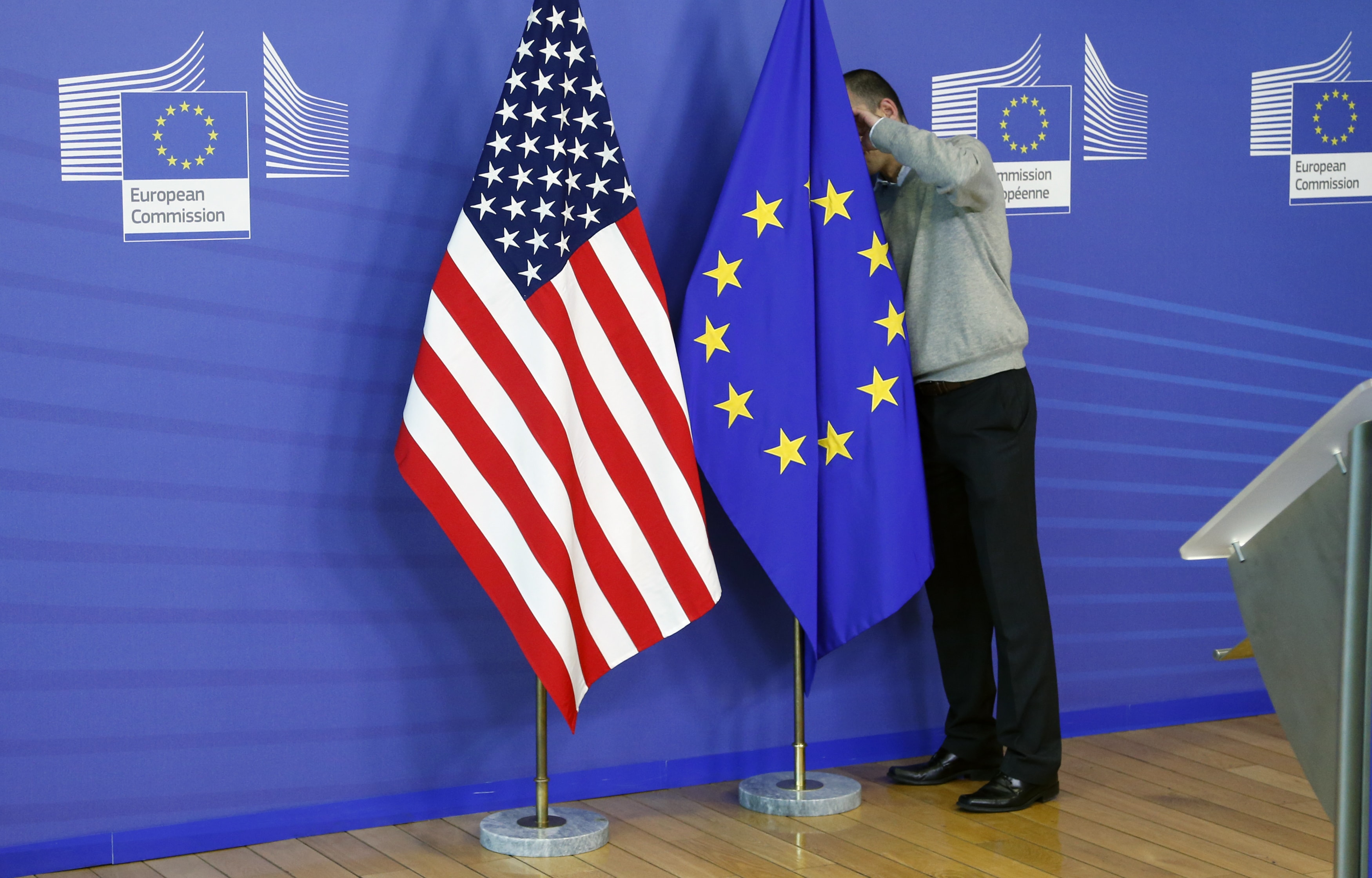
EU-US trade negotiations continue shutting out the public – when will they learn?
EU and US trade officials still have not learned the more important lesson from ACTA – shutting out the public from seeing or participating in a given policymaking venue only guarantees that the public will see those resulting policies as illegitimate.

Without net neutrality, the threats range from slow lanes to censorship
There is a real danger that eliminating the open net could lead to content discrimination by Internet providers that don’t like what they see.

How automatic encryption ensures safety by default
Everyone benefits from secure tools, but the most vulnerable users — such as journalists — benefit most when they don’t need to go out of their way to stay safe.

UN Human Rights Council unanimously adopts new resolution on safety of journalists
Among other key aspects, a new UN Human Rights Council resolution elaborates on the need and, notably the means, to have full investigations and prosecutions in the hundreds of cases of murdered journalists.
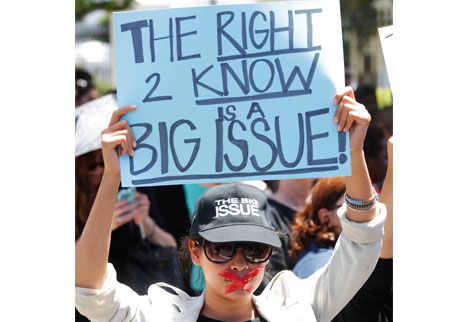
On Right to Know Day, calls for UN to include free expression rights in development goals
More than 100 civil society organisations ask the UN Secretary General to recognise the importance of free expression rights in the sustainable development goals.
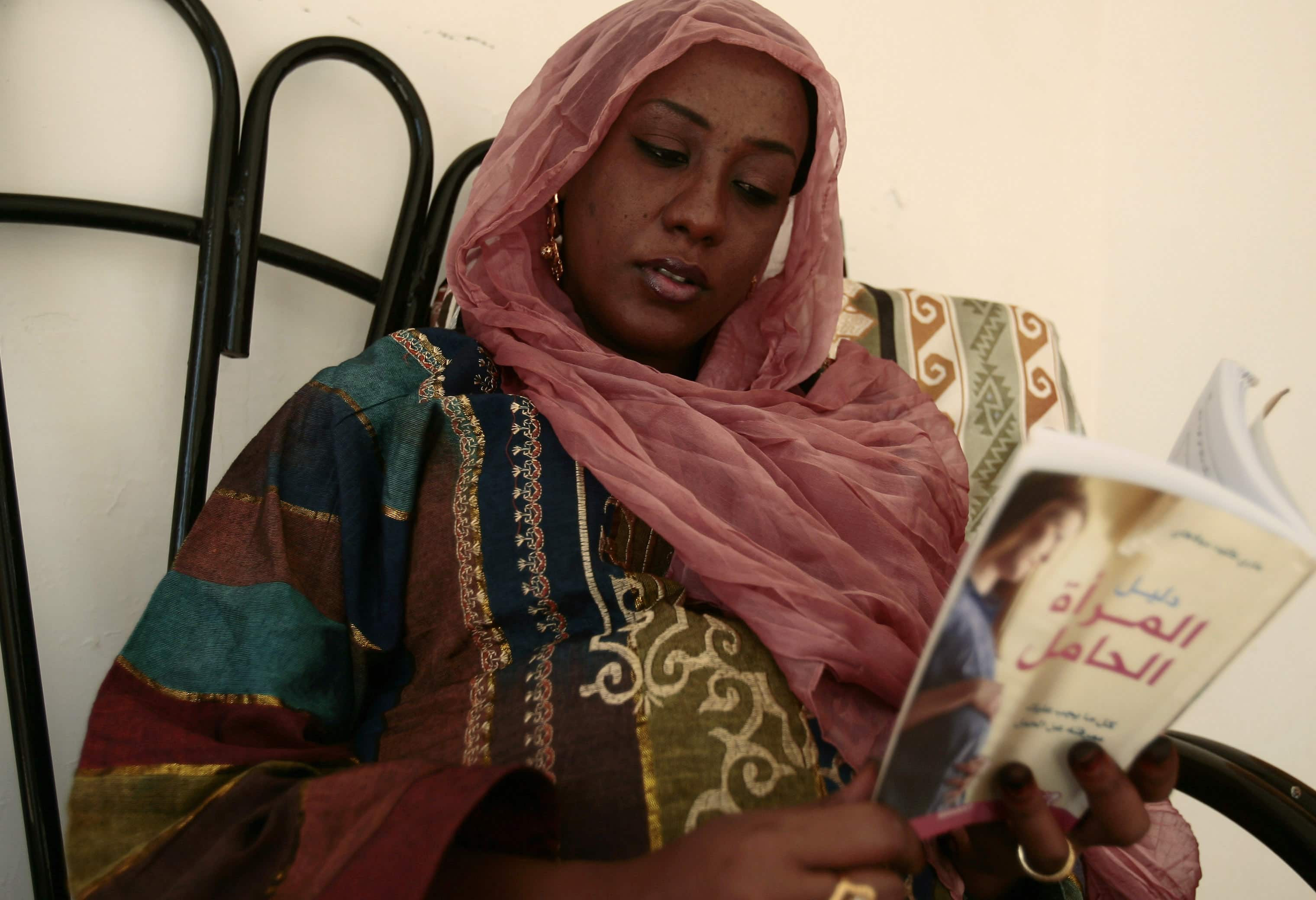
Where books are banned, the Internet can be a lifesaver
For individuals living in countries with high levels of censorship, the Internet has become a means for circumventing restrictions on book sales.
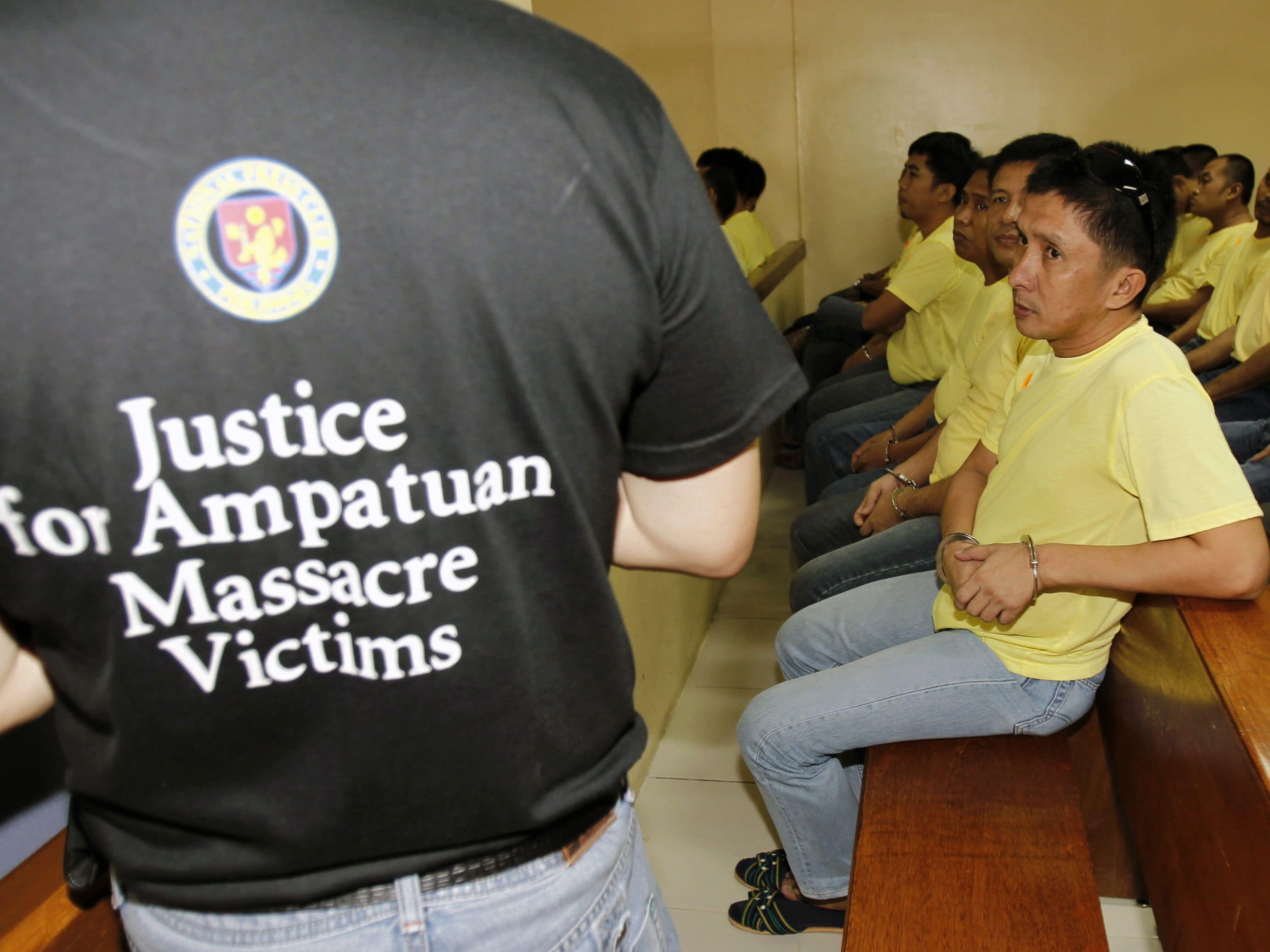
UN HRC: States called on to end impunity for attacks on journalists
At a side event during the UN Human Rights Council’s 27th session, ARTICLE 19 convened a high-level panel discussion to underscore the importance of States supporting a draft resolution on the safety of journalists.
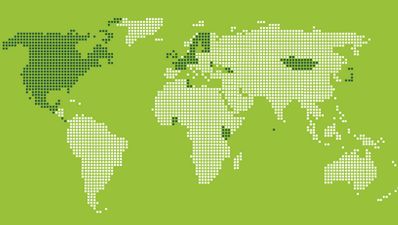
Members of Freedom Online Coalition may be using FinFisher surveillance spyware
Documents recently released by WikiLeaks have brought new evidence to the public eye that the intrusive surveillance spyware FinFisher may be in use by several members of the Freedom Online Coalition, including Mongolia, Netherlands, and Estonia.

Post 2015 and the Right to Know
Right to Know Day, on 28 September, coincides with the start of a year-long negotiation process to agree the Post-2015 agenda. States will be discussing the framework that will be the foundation for international policy commitments for the next fifteen years and more.

UN HRC: Right to water and sanitation relies on free expression
In an oral statement to the UN Human Rights Council on 9 September 2014, ARTICLE 19 welcomed the annual report of the Special Rapporteur on the Human Right to Safe Drinking Water and Sanitation for making strong recommendations for States to recognise the connection between the right to water and sanitation and the right to […]

The IGF and the ‘inconvenient’ ungovForum
At the recent Internet Governance Forum held in Turkey, the authorities rejected applications for workshops filed by grassroots-based Turkish organizations about the Turkish government’s acts of censorship and surveillance. The ungovForum was therefore set up as an alternative forum and counterpoint to the IGF.

UNHRC: Joint statement on privacy in the digital age
This week’s discussion of the report on surveillance by the UN High Commissioner for Human Rights at the Human Rights Council is a critical moment in the global understanding of the human rights challenges raised by unlawful and arbitrary surveillance.

Towards an Internet Nation?
EFF generally focuses less of our time and attention on the evolution of institutional Internet governance, and more on fighting for substantive rights and freedoms through the structures that we already have. But this is not the same as to accept that existing governance structures are perfect, or that rights and freedoms on the global Internet might yet be best safeguarded by new models which did not directly proceed from the affairs and interests of nation states.

Watch it: An animated intro to the IFEX Campaign Toolkit
See in this video how our animated campaigners use the toolkit to get a free expression advocate out of jail.

From reddit to Pornhub, websites slow down for net neutrality on 10 September
On 10 September, digital rights organisations, Internet companies and even major adult platforms will join an online protest calling for stronger protections for net neutrality.
Posts pagination
Like what you see here? Let's stay in touch
Get the latest free expression news delivered straight to your inbox.